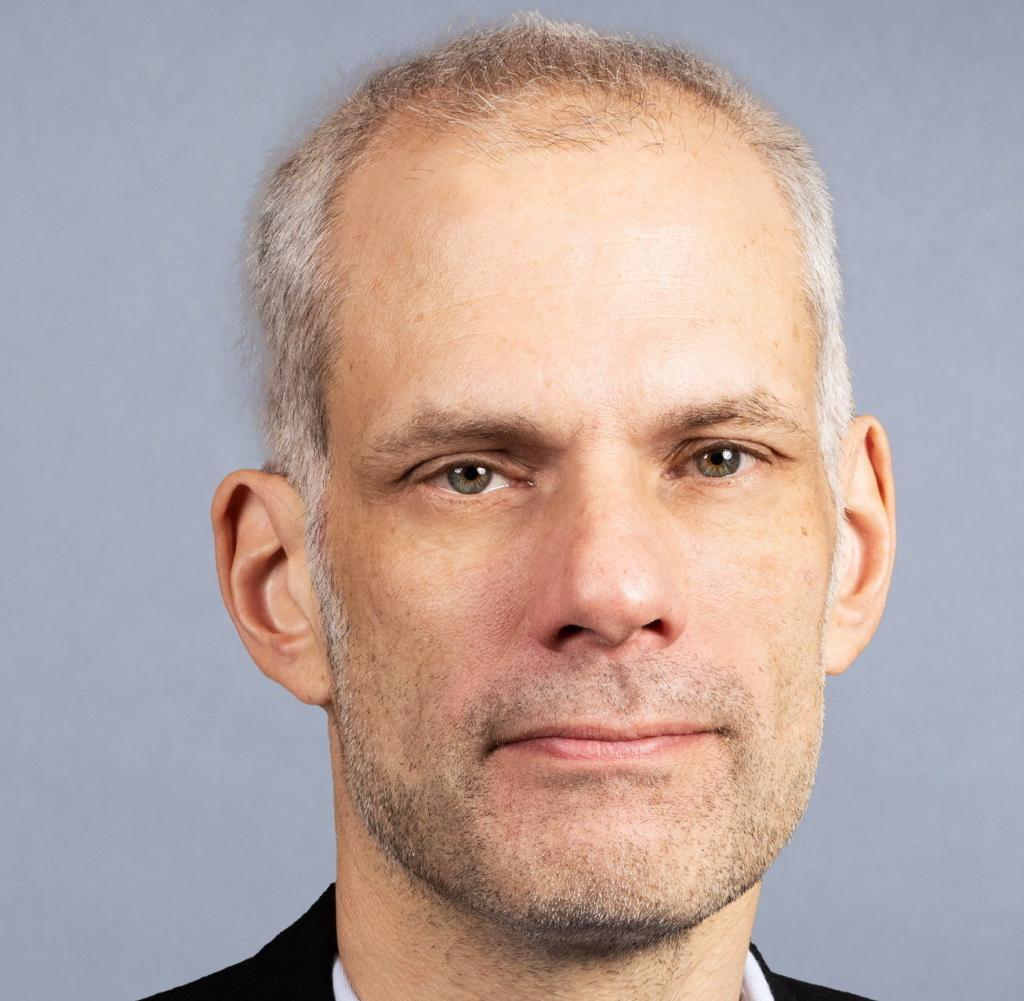The elegant luxury hotel “Bayerischer Hof” in the middle of Munich is anything but a revolutionary address, and the event that took place here at the end of April was not actually marked by any uproar. The Bavarian Economic Advisory Council had invited people to the event, and a small number of mostly older men, mostly dressed in suits, attended.
One of them gave a lecture lasting about 20 minutes – and it was so intense that a recording of the seemingly dull event was shared and commented on thousands of times on social media.
The man’s name is Theodor Weimer, he has been at the helm of the German Stock Exchange since 2018 and has been one of the country’s most important business leaders for many years. What he presented in Munich is nothing less than a comprehensive, unprecedented reckoning with Germany as a business location and the responsible government in Berlin.
Economic policy, immigration, innovation – wherever Weimer looks, he sees signs of advanced decline. “We are on the way to becoming a developing country,” he warns. Radical action is needed to reverse this trend.
Entrepreneurs must stop sitting like rabbits in front of the snake in front of the government and waiting for it to bite. Instead, they should practice resistance and take the USA as an example. “We don’t care which old man becomes president,” say top managers there. “We run the country.”
Such tones have not been heard from the inner circles of the German business elite. Of course, many business leaders have built up a lot of frustration about the traffic light coalition, and BDI President Siegfried Russwurm recently lamented “two lost years”.
And yet, even in confidential discussions, CEOs strove to maintain a minimum of composure and not risk an open break with Berlin. If they suffered, they suffered in silence – and invested abroad. Weimer broke this non-aggression pact. He attacked the government in an unprecedentedly open and comprehensive manner – especially one of its members.
He has just had his 18th meeting with Vice Chancellor and Economics Minister Robert Habeck, he reports: “And I can tell you, it is a complete disaster.” At the beginning of Habeck’s term in office, he was even enthusiastic, the minister listened carefully and did a few things right. But now “the fundamentalists are coming through more and more.”
Later, in the discussion with the audience, Weimer is just as clear. When Habeck says that he is lacking 40 billion euros for an economic stimulus package, the question arises as to “what kind of person he is.” There is a lack of many things in Germany, but certainly not capital. There is plenty of it, and it is immediately available when there is a prospect of profits. “In the end, capital is a whore,” says Weimer.
He points out several times that he is not just expressing his own opinion, but that of large, international investors with whom he speaks all the time. And that opinion is as bitter as it is clear. “Our reputation in the world has never been as bad as it is now. Never!” shouts Weimer.
What he hears has a “fatalistic character”; in Singapore he is asked what kind of government Germany is actually running, while elsewhere people just shake their heads and wonder where the German virtues have gone. “What you are doing is simply crazy,” is a widespread diagnosis, coupled with the announcement that they are “moving even further away from Germany.” The fact that the DAX is at record highs does not bother Weimer. Those who invest here are doing so “only opportunistically” because it is so cheap. “We have become a junk shop,” he says.
The fact that the stock exchange boss speaks so freely may also be due to the advanced stage of his career. In a few months, his term at the top of the stock exchange will end after a good six years. He will be 65 in December, so he no longer has to be considerate. But it is not really surprising: the former investment banker has always been known as a friend of plain speaking.
In the world of top managers, which has been polished beyond recognition by media trainers and communications consultants, he has been an exception for years. This also applies to his openly displayed self-confidence. At the meeting in Munich, he introduced himself as “Mr. Dax,” who knows half of the most important German CEOs “on a first-name basis” and is a “sought-after but not loved conversation partner” in Berlin and Brussels.
Later, he complains that the stock exchange’s supervisory board no longer wants to approve a really large company car with a combustion engine for sustainability reasons. “We need to make the company cars big again, that will create growth,” he says.
Weimer has repeatedly offended people with this broad-legged approach, but even his opponents can hardly accuse him of trying to distract from his own failures with his criticism of politics. The stock exchange’s business is flourishing, Weimer has expanded it with numerous takeovers, and “Manager Magazin” voted him “Manager of the Year” in 2022.
The company’s share price has almost doubled under his leadership, and the DAX has increased by a good 40 percent in the same period. The difference is also due to the fact that the stock market is valued as a software company and thus performs better than many other industries – one in particular: “We have ruined the automotive industry,” says Weimer – and then hints darkly at the sinister work of “certain circles.”
For him, however, this is only one link in a long chain of serious mistakes. The “do-gooder focus” in migration policy is “everyone sees it as completely wrong”; instead of hard work, the focus is on work-life balance and home office.
All of these are indications that “the economic policy compass” is missing. As a result, the state is intervening ever more deeply in economic activity and patronizing citizens. “Damn it, I don’t want to be protected by this government,” says Weimer. The state must withdraw, tax cuts should enable intelligent investments, a “real leap forward” is needed in digitalization. And entrepreneurs must dare to be more self-confident.
Several international investors do not want to comment on Weimer’s statements about the alleged turning away from Germany. “That is certainly not true in general,” say those close to a large investment company. Representatives of the business world are enthusiastic about the clear words.
“The patience of the otherwise very moderate German economy has run out,” says Thorsten Alsleben, managing director of the Initiative for a New Social Market Economy (INSM). “This government must immediately change course towards more growth, or we will need a new government.”
Weimer hits “the nail on the head,” says entrepreneur and supervisory board member Sarna Röser. She travels abroad a lot and can confirm the stock exchange boss’s analyses. “With ideological left-green politics, moral finger-wagging and feminist foreign policy, Germany is no longer taken seriously at home and abroad and will continue to slide.” Germany urgently needs a change of course towards a pragmatic economic policy. For a long time, she has missed the voice of CEOs and managers. “Now someone is finally speaking plainly!”




